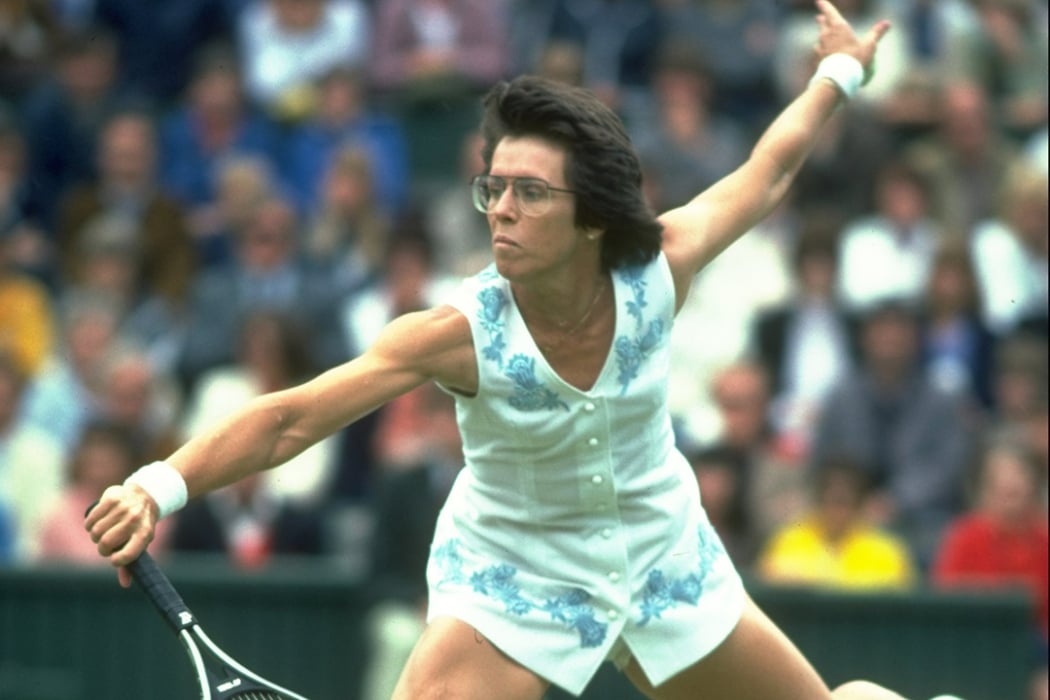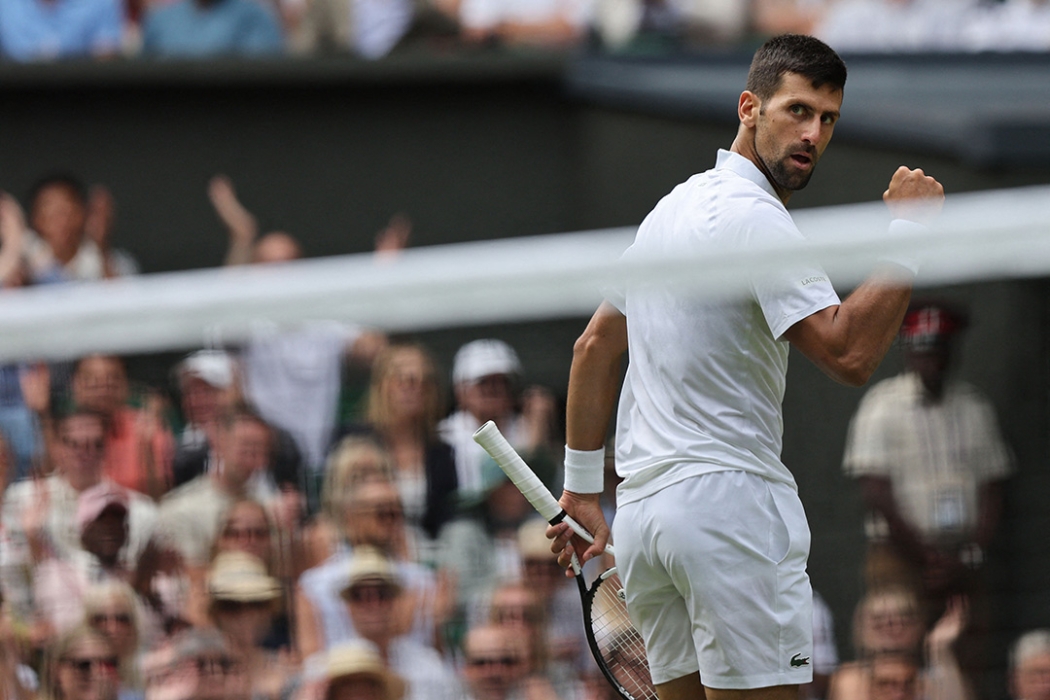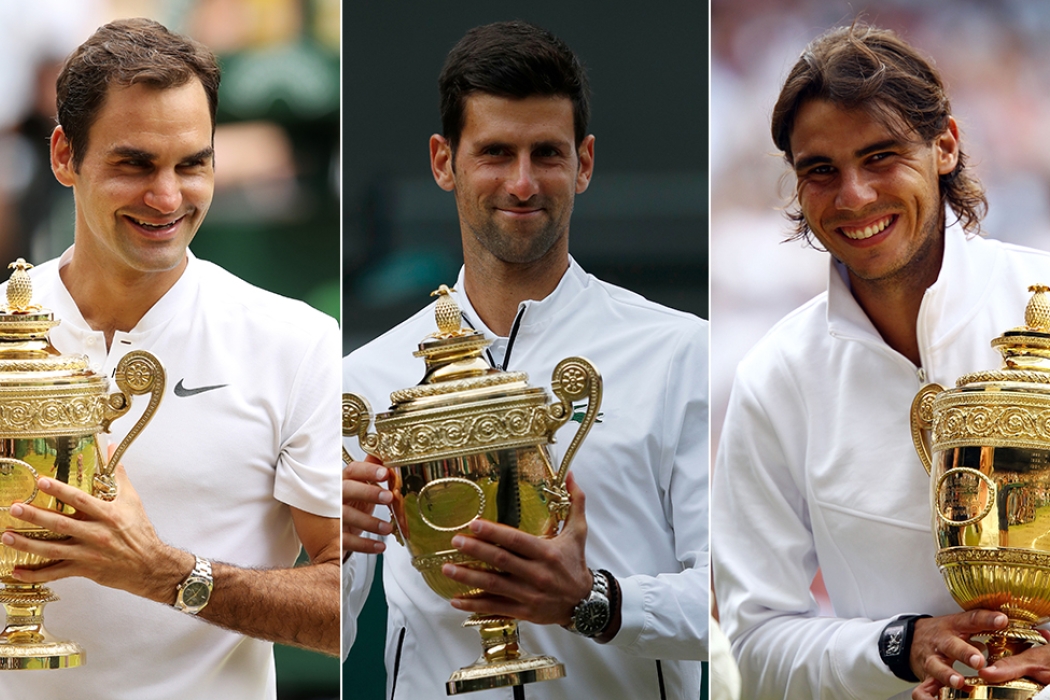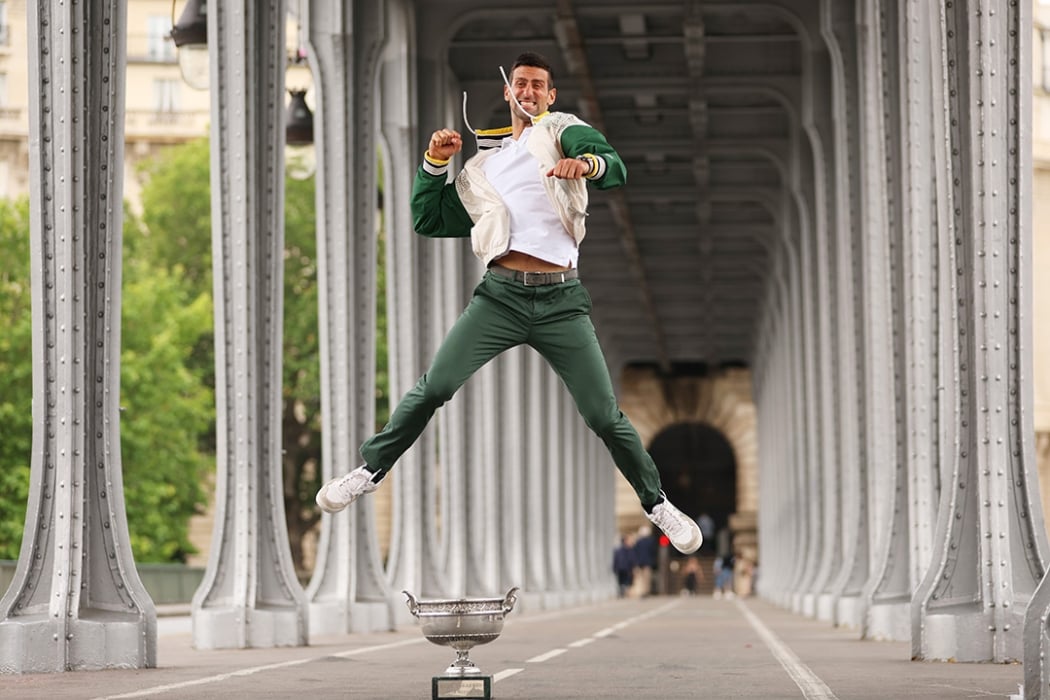A version of this article first appeared in the August/September 2023 issue of Australian Tennis Magazine, one of the world’s longest-running tennis publications. For more in-depth features, news and analysis, you can subscribe now.
Novak Djokovic has won more Grand Slam singles titles than any other male player in history. He is also the longest-reigning world No.1 in the sport.
Twenty years into his professional playing career, the Serbian superstar is showing no signs of slowing down either.
At Wimbledon, he became just the third player in history to record 350 Grand Slam singles wins. Only Roger Federer (369) and Serena Williams (365) have won more.
But when it comes to winning percentage at Grand Slam level, Djokovic (on 88 per cent) has both of their measures.
So, has the 36-year-old’s growing list of phenomenal records finally answered the age-old question of exactly who is the G.O.A.T (greatest of all time)?
“When you talk about history, people mostly talk about the Grand Slams won or the amount of time you spent at No.1 in the rankings,” Djokovic said. “I have managed to break the records in both of these statistics, which is amazing.”
Many believe Djokovic’s unmatched achievements are in fact debate-ending. Yet he refuses to subscribe to that notion.
“I don't want to say that I am the greatest, because I feel it's disrespectful towards all the great champions in different eras of our sport, that was played in a completely different way than it is played today,” Djokovic said.
“I feel like each great champion of his own generation has left a huge mark, a legacy, and paved the way for us to be able to play this sport on such a great stage worldwide.
“So, I leave those kinds of discussions of who is the greatest to someone else.”
Novak's legacy
An insatiable appetite to defy the odds has long fuelled Djokovic’s dreams.
From growing up in a war-torn country with little tennis tradition, to overcoming some of the sport’s greatest champions, Djokovic has proven anything is possible.
His fearlessness to dream big, he explains, was a quality his parents encouraged from a young age.
“My family was on a very low budget. But my parents still decided to support me in my dream, which was to become a professional tennis player and hopefully win Wimbledon and be No.1 in the world,” Djokovic related.
“You know, 95-plus per cent of people would be laughing at them, were laughing at them, and were discouraging them to spend whatever is left over from the family budget into such an expensive sport.
“Coming from a country that had almost no tennis tradition, it was extremely challenging and the chances of me succeeding were very slim.”
Djokovic describes his mother, Dijana, as “a rock”. “She’s an incredible woman that kept our family together in the toughest moments,” Djokovic said.
He labels his father, Srdjan, as the “driving force of the family”. “He has instilled in me such power of belief and positive thinking into achieving goals, that it’s beyond anybody that I have ever met,” Djokovic said.
“No one played tennis in my family, so he had to ask people who were experts, who were knowledgeable in the field to know whether I have potential and whether he should invest money or not.”
Djokovic also credits his late mentor and childhood coach Jelena Gencic for “shaping my mind as a human being, but also as a professional”.
“I was only seven, eight years old, and she had me watching these tapes of all the best players, both male and female at that time. I had to know exactly why a certain shot is hit at a certain time on a certain surface, etcetera, from a very young age,” Djokovic said. “So, she was treating me very maturely, and she thought that it's never too early to start with this kind of mindset and development.”
State of mind
Djokovic’s mental toughness has arguably been his greatest asset across a record-breaking career.
He is the only man in the Open era to twice save match points in a Grand Slam singles title-winning run. His fortitude has also helped him fight through injury setbacks, like at this year’s Australian Open when he managed to win the tournament with a torn hamstring.
“He just locks in and makes you have to play either ridiculously well to win the points, or he steps up with a winner himself. He knows how and when to step up. He's smart,” Casper Ruud bemoaned after losing to Djokovic in this year’s Roland Garros final. “It's annoying for me, but it's very, very impressive.”
Stefanos Tsitsipas, who has lost to Djokovic in both of his Grand Slam final appearances, agrees.
“Novak is a player that pushes you to your limits,” he said. “This is very good for the sport, to have competitors like him, to have champions like him.
“He has made me a much better player. He has made my levels of concentration higher and higher every single time I get to play him. You have to be really involved and you have to be dedicated to the game when you play against him.”
His greatest rivals
Djokovic’s emergence coincided at the height of one of the sport’s most revered rivalries.
Federer and Rafael Nadal became his fiercest foes, setting an extraordinarily high benchmark in the process.
Determined to match their brilliance, Djokovic soon formed part of the famed ‘Big Three’. “The truth is that I have always compared myself to these guys,” Djokovic said of Federer and Nadal.
“Because those two are the two greatest rivals I ever had in my career. They have actually defined me as a player, and all the success that I have had. They have contributed to it, in a way, because of the rivalries that we had.
“(I spent) countless hours thinking and analysing what it takes to win against them on the biggest stage. For me and my team, it was just those two guys occupying my mind for the last 15 years quite a lot.”
REPORT: Number 10 for Novak at AO sees Djokovic join Nadal
Djokovic now holds winning head-to-head records against both. He won 27 of his 50 career meetings against Federer and has won 30 of his 59 encounters with Nadal.
Chasing greatness
Djokovic is acutely aware of what he has – and can still – achieve.
“It’s no secret that one of the main reasons I play today and compete in professional tennis is to try to break more records and make more history,” Djokovic said ahead of his 19th Roland Garros campaign. “History being on the line is something that is very flattering and is very motivating, no doubt about it.”
He openly expressed his desire to surpass Federer’s record for total weeks at world No.1, a feat he achieved in March 2021.
And his persistent pursuit to overtake both Federer and Nadal’s Grand Slam tally has formed part of the tennis narrative for many years.
Djokovic has accomplished that goal too, winning an unprecedented 23rd major men’s singles title at Roland Garros this year.
He admitted to feeling “huge relief” after that record-breaking effort.
“It’s amazing to know that I’m ahead of both of them in Grand Slams,” Djokovic said.
“But at the same time, everyone writes their own history. I still think that everyone has a unique journey that they should embrace and stick to.”
An ageless champion
Djokovic’s victory at Roland Garros this year made him the oldest man in the Open era to win a singles title in Paris.
It was also his 11th major title won in his 30s, surpassing Serena Williams’ previous record of 10.
“I don’t like to think about the age,” Djokovic said. “Age is just a number, it sounds like a cliché, but I really feel age is just a number in my case.”
Meticulous preparations, both on and off the court, have been a key to Djokovic’s sustained success.

The Serb famously follows a gluten-free diet and embraces innovative recovery methods, such as hyperbaric chambers and floatation therapy, to help his body both physically and mentally.
Throughout this season, Djokovic has been spotted with a small button-sized device taped to his chest. This nanotechnology reportedly nourishes the body with wavelengths of therapeutic light to improve fitness and health.
“Truth of the matter is, and reality is, my body is responding differently,” Djokovic said.
“I have to deal with more things physically than I have had maybe in the past. Maybe five to 10 years ago I was recovering much quicker or just didn’t feel as much pain in the body that I'm feeling today.”
Major motivations
Remarkably, Djokovic’s determination to build on his incredible records is unwavering.
“I feel incredibly proud, fulfilled. I’m so blessed to be able to share it with my family, my kids, my wife, my parents, everyone who has been supporting me in this journey,” he said.
“(But) of course, my journey is still not over. I feel if I’m winning Slams, why even think about ending a career that already has been going on for 20 years?
“I still feel motivated. I still feel inspired to play the best tennis. I still feel hungry for success, for more Grand Slams, more achievements in tennis.”
After a 27-match winning streak at Grand Slam level came to an end in the Wimbledon final, Djokovic immediately turned his attention to the upcoming US Open.
“I’m writing my own history,” Djokovic said.
“Every Grand Slam at this stage of my career is like a present for me, so I’ll try to use the opportunity as best as possible.”
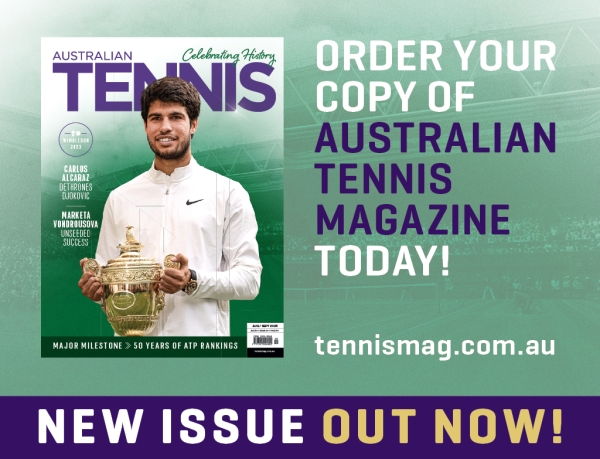
Carlos Alcaraz is the cover star of the August/September 2023 issue of Australian Tennis Magazine.
